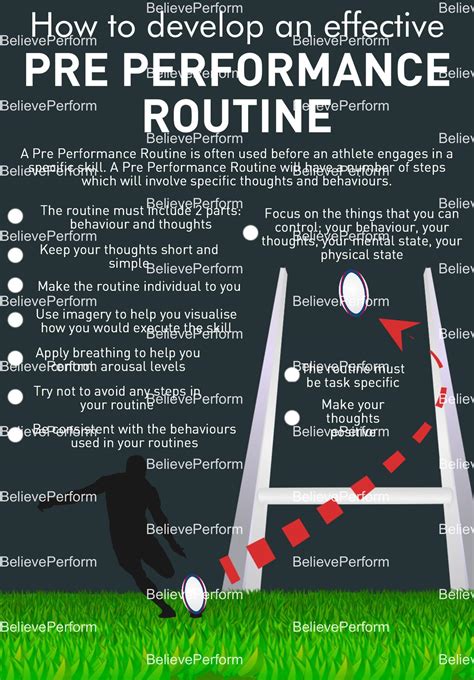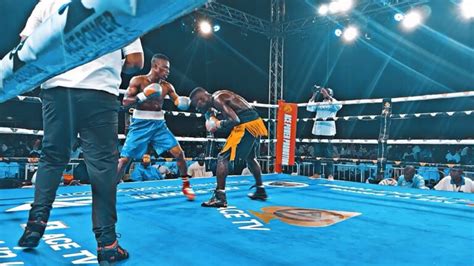Discover how a personalized pre-fight routine can enhance performance, including mental preparation, physical warm-ups, and effective evaluation techniques.In the high-stakes world of fighting, success is often defined by preparation and mindset. One of the most effective strategies for athletes is the development of a tailored pre-fight routine, designed to enhance focus, boost confidence, and optimize physical performance. This article will explore the significance of a structured pre-fight routine, offering practical insights on creating a personalized checklist that aligns with your unique needs. From incorporating mental preparation techniques to physical warm-up methods, we’ll guide you through each crucial element of your routine. Additionally, we will touch upon how to evaluate the effectiveness of your pre-fight strategy, ensuring continuous improvement. Join us as we delve into the essential components that can make a significant difference in your fighting achievements.
Understanding The Importance Of A Pre-Fight Routine
A pre-fight routine is crucial for athletes, especially fighters, to establish a consistent mental and physical state before competition. The role of a structured routine cannot be overstated, as it sets the tone for the fight and helps in the overall preparation process.
First and foremost, a pre-fight routine helps in reducing anxiety and stress. By having a set sequence of actions, fighters can create a sense of familiarity and control, which can significantly alleviate nerves. Knowing what to expect and having a clear plan allows athletes to focus their energies on performance rather than on potential distractions.
Moreover, consistency is key in performance enhancement. A well-defined routine ensures that vital aspects such as mental preparation, physical warm-up, and strategy review are executed regularly. This consistency can lead to improved muscle memory and performance under pressure, allowing fighters to access their skills more naturally during the bout.
Physical preparation is also an essential component. Engaging in specific warm-up techniques primes the body, enhancing flexibility, strength, and readiness. A fighter’s physical and mental states are closely linked; by activating the body, the mind can become more focused and agile.
In addition, evaluating the outcomes of your pre-fight routine after each fight provides invaluable insights. Understanding what works and what doesn’t allows fighters to adapt their strategies, refining their approach for better results in future competitions.
how to formulate an effective pre-fight routine is fundamental for anyone looking to succeed in the ring. The benefits range from mental clarity to superior physical readiness, establishing a solid foundation to combat the challenges of fighting. Creating and adhering to a pre-fight routine is not merely a suggestion; it is a necessity for serious athletes seeking to maximize their performance.
How To Create A Personalized Pre-Fight Checklist
Creating a personalized pre-fight checklist is essential for ensuring that you are mentally and physically prepared for the competition. Your checklist should reflect your unique needs, preferences, and experiences. Here are the key components to consider when developing your personalized checklist:
- Self-Assessment: Start by evaluating your strengths and weaknesses. Identify which areas require more focus in your preparation.
- Specific Goals: Set clear and achievable goals for what you want to accomplish in your fight. This could include technical skills, mental focus, or physical endurance.
- Training Routine: Outline your training schedule leading up to the fight, including sparring sessions, conditioning workouts, and technique refinement.
- Nutritional Plan: Make sure to include a nutrition strategy that supports your energy levels and recovery. Note foods to consume before the fight.
- Weight Management: If applicable, incorporate plans for weight cutting or maintenance to ensure you meet your weight class requirements.
- Mental Strategies: Include mental preparation techniques, such as visualization, breathing exercises, or affirmations, to enhance focus and reduce anxiety.
- Gear Checklist: Create a list of gear you need to bring on fight day, such as gloves, mouthguards, and attire, to ensure you don’t forget anything.
- Timing: Determine the timing of your pre-fight activities, including warm-up sessions and arrival at the venue, to allow ample time for preparation.
- Rest and Recovery: Plan for adequate rest days leading up to the fight to allow your body to recover fully and be in peak condition.
- Reflection: After each fight, take the time to reflect on your performance. What worked well? What didn’t? Use these insights to adjust your checklist for future fights.
Your personalized pre-fight checklist will serve as a valuable tool in guiding you through the critical days leading up to your fight. Remember, a well-prepared fighter is a confident fighter!
Incorporating Mental Preparation Into Your Routine
To enhance your fighting performance, mental preparation is just as crucial as physical conditioning. A strong mental approach can provide the focus, confidence, and resilience needed to tackle the challenges of any fight. Here are several strategies on how to effectively incorporate mental preparation into your pre-fight routine:
- Visualization Techniques: Spend time visualizing your performance. Picture yourself going through your routine, executing techniques successfully, and overcoming potential challenges. This mental rehearsal can significantly boost your confidence and readiness.
- Affirmations: Develop a list of positive affirmations that resonate with your fighting style and mindset. Repeating these affirmations can reinforce a positive mental attitude and reduce anxiety before the fight.
- Meditation and Breathing Exercises: Engage in meditation or deep breathing exercises to calm your mind and center your focus. Taking a few moments to breathe deeply can help reduce pre-fight jitters and allow for clearer thinking under pressure.
- Setting Goals: Outline clear, achievable goals for your performance. Whether it’s to maintain composure or to implement specific techniques, setting intentions can guide your actions and keep you motivated during the fight.
- Analyzing Past Performances: Reflect on previous fights to identify mental barriers or triggers. Understanding these aspects can help you strategize and reinforce your mental approach to avoid repeating any mistakes.
By implementing these mental preparation techniques into your pre-fight routine, you’ll be better equipped to handle the psychological demands of combat sports, helping to ensure you fight at your best potential.
Physical Warm-Up Techniques For Optimal Performance
Engaging in an effective warm-up routine is crucial for enhancing your physical performance and reducing the risk of injury before a fight. A well-structured warm-up prepares your body both physically and mentally, ensuring that you are in prime condition for the upcoming competition. Here are some key warm-up techniques to incorporate into your pre-fight routine:
| Technique | Description | Duration |
|---|---|---|
| Dynamic Stretching | Involves moving parts of your body through a full range of motion to increase blood flow and flexibility. Example: Leg swings, arm circles. | 5-10 minutes |
| Joint Mobilization | Focuses on loosening the joints to improve mobility and reduce stiffness. Example: Ankle rolls, wrist circles. | 5 minutes |
| Agility Drills | Utilizes quick movements and footwork exercises to sharpen reflexes and enhance coordination. Example: Ladder drills, cone sprints. | 5-10 minutes |
| Sport-Specific Warm-Up | Involves practicing moves or techniques that are specific to the fight style you will be using. This helps in muscle memory retention. | 10 minutes |
By integrating these warm-up techniques into your pre-fight preparations, you can optimize your physical readiness and mental focus. Always remember, preparation is key to performance; thus, exploring how to tailor these suggestions to fit your specific needs can lead to a successful fight strategy.
Evaluating The Results Of Your Pre-Fight Routine
Evaluating the effectiveness of your pre-fight routine is critical for continuous improvement and achieving success inside the ring. Here are some strategies to assess how well your routine prepares you for competition:
1. Keep a Performance Journal: Document your feelings, energy levels, and overall performance after each fight. Note any variations in your pre-fight routine and correlate them with your performance outcomes. This will help you identify which elements contribute positively to your success.
2. Feedback from Coaches and Peers: Solicit feedback from your coaches and training partners regarding your readiness before the fight. They may offer insights on areas for improvement that you might overlook.
3. Consistency in Results: Analyze your fight results over multiple events. Are you consistently performing at a higher level after following your routine, or are there fluctuations? Consistency in your performance can indicate the effectiveness of your routine.
4. Adjusting Based on Performance Metrics: Utilize objective performance metrics, such as your speed, strength, and stamina, to measure your performance pre- and post-fight. If you notice improvements in these areas, it is likely that your routine is positively impacting your fighting skills.
5. Mental State Evaluation: Post-fight, reflect on your mental state during the competition. Were you calm, focused, and confident? If you experienced anxiety or distractions, you may need to adjust the mental preparation aspects of your pre-fight routine.
By systematically evaluating your results, you will be able to refine your pre-fight routine, making adjustments for future successes. Remember, the goal is not just to have a routine, but to ensure it effectively prepares you for the challenges of the fight ahead.
Frequently Asked Questions
What is a pre-fight routine?
A pre-fight routine is a series of actions and practices that fighters engage in before a competition to prepare mentally and physically for success.
Why is a pre-fight routine important?
A pre-fight routine helps to reduce anxiety, increase focus, and establish a sense of control, allowing fighters to perform at their best.
What elements should be included in a pre-fight routine?
Key elements can include warm-up exercises, visualization techniques, breathing exercises, positive affirmations, and reviewing fight strategies.
How can visualization benefit a fighter before a match?
Visualization allows fighters to mentally rehearse their performances, enhancing confidence and helping to reduce pre-fight jitters.
How long before the fight should a routine start?
A pre-fight routine should ideally start hours or even days in advance, incorporating both physical training and mental preparation.
Can a pre-fight routine evolve over time?
Yes, a pre-fight routine can and should evolve based on experiences, feedback, and changes in training or competition environments.
How can fighters tailor their routine to their personal preferences?
Fighters can customize their pre-fight routine by identifying what practices make them feel most comfortable, confident, and focused, thereby enhancing their performance.









